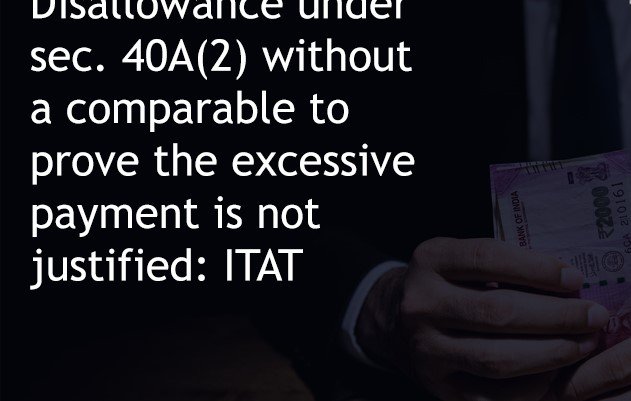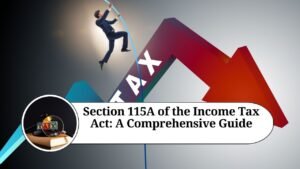When it comes to computing profits and gains from business or profession, the provisions of the Income Tax Act, 1961, particularly Sections 30 to 38, play a crucial role. These sections allow businesses to claim deductions on various expenses, such as rent, repairs, depreciation, and salaries. However, not all expenses claimed under these sections may be allowed, especially when Section 40A of the Act comes into play.
In this blog, we will delve into how Section 40A overrides the provisions of Sections 30 to 38 and the implications this has for taxpayers, particularly in the context of disallowing certain business expenses.
Overview of Sections 30 to 38: Allowable Deductions
Sections 30 to 38 of the Income Tax Act provide detailed guidelines on the types of expenses that can be deducted from business income to arrive at the taxable income. Here’s a brief overview:
- Section 30: Deduction for rent, repairs, and insurance of buildings used for business.
- Section 31: Deduction for repairs and insurance of machinery, plant, and furniture.
- Section 32: Depreciation on tangible and intangible assets.
- Sections 33AB and 33ABA: Deductions for specified industries, such as tea, coffee, and rubber development.
- Section 35: Deductions related to scientific research expenditures.
- Sections 36 to 38: Deductions for other general business expenses, including interest on borrowed capital, insurance premiums, bad debts, and more.
While these sections provide significant tax relief to businesses, certain expenses can be disallowed under Section 40 or 40A if they do not meet specific criteria or if they are found to be excessive or unreasonable.
The Role of Section 40A: Disallowance of Certain Expenses
Section 40A acts as a safeguard by disallowing certain types of expenditures that may otherwise be deductible under Sections 30 to 38. The key aspects of Section 40A include:
- Non-Obstante Clause: Section 40A starts with a non-obstante clause, meaning it overrides all other provisions in the Act. If an expense is addressed by both Section 40A and any other section (like Section 40), the provisions of Section 40A will prevail.
- Disallowance of Payments to Relatives: Under Section 40A(2), any payment made to a relative or an associate that is deemed excessive or unreasonable compared to the market value of the goods, services, or facilities provided can be disallowed to the extent of the excess.
- Disallowance of Cash Payments: Section 40A(3) disallows any cash payment exceeding Rs. 10,000 made to a single person in a day, except in certain specified circumstances. This provision aims to promote transparency and discourage cash transactions that could potentially lead to tax evasion.
- Provisions for Non-Residents: Section 40(a)(i) addresses payments made to non-residents, such as interest, royalties, or technical service fees. If tax is not deducted at source (TDS) on these payments, the entire amount can be disallowed as a deduction.
- Disallowance of Salary Paid to Partners: Section 40(b) deals specifically with the payment of salary, bonus, commission, or remuneration to partners of a firm. Such payments are allowed only to the extent specified in the partnership deed and must be within the limits prescribed by the Act.

Interaction Between Sections 40 and 40A
The relationship between Sections 40 and 40A is particularly important when it comes to the disallowance of expenses. While Section 40 targets specific expenditures like payments to non-residents, salaries to partners, and other specified expenses, Section 40A has a broader scope and can override Section 40 when both sections apply to the same expenditure.
For instance, if a payment falls under Section 40 but is also deemed excessive or unreasonable as per Section 40A(2), the provisions of Section 40A will take precedence. This means that the amount considered excessive under Section 40A will be disallowed, even if it would otherwise have been allowed under Section 40.
Key Case Laws on Section 40A
Several landmark judgments have clarified the application of Section 40A, particularly in relation to other sections of the Income Tax Act:
- Ganesh Factory: This case held that the allowability of payment of salary to a partner should be decided under Section 40(b) alone, and Section 40A(2) cannot override this, as salary payments to partners do not come within the ambit of Section 40A(2)(a).
- N.M. Annich & Co. v. CIT: This case reinforced that the overriding effect of Section 40A is limited to the specific provisions it governs and cannot make other sections, like Section 40(b), redundant.
- CIT v. C.C.C. Holdings: The court held that the provisions of Section 40(a)(i) are attracted if tax has not been deducted at source for payments made outside India or to non-residents, emphasizing the non-deductibility of such payments.
Implications for Businesses and Taxpayers
Understanding the interplay between Sections 30 to 38 and Section 40A is crucial for businesses and tax professionals. Misinterpretation of these provisions can lead to disallowance of legitimate expenses, resulting in higher tax liabilities.
Businesses should ensure that:
- All payments, especially to relatives or associated entities, are at arm’s length and justifiable with proper documentation.
- Cash transactions are minimized and, where necessary, properly documented to avoid disallowance under Section 40A(3).
- Payments to non-residents comply with TDS provisions to avoid disallowance under Section 40(a)(i).
- Salary and remuneration to partners are within the limits specified in the partnership deed and as per the provisions of Section 40(b).
FAQs on Section 40A and its Overriding Effect on Sections 30 to 38 of the Income Tax Act
Q1: What is the purpose of Section 40A in the Income Tax Act?
A1: Section 40A is designed to regulate and restrict certain business expenses that may otherwise be allowable under Sections 30 to 38 of the Income Tax Act. It ensures that expenses are not excessive or unreasonable, especially in transactions involving related parties, cash payments, and payments made to non-residents without proper tax deductions.
Q2: How does Section 40A override the provisions of Sections 30 to 38?
A2: Section 40A contains a non-obstante clause, meaning it overrides other sections of the Income Tax Act wherever there is a conflict. For example, if an expense is allowed under Sections 30 to 38 but is deemed excessive under Section 40A(2), the excess portion will be disallowed despite its allowability under the other sections.
Q3: Can payments to partners of a firm be disallowed under Section 40A?
A3: Payments to partners, such as salaries or commissions, are specifically governed by Section 40(b). While Section 40A generally has an overriding effect, in the case of partner payments, Section 40(b) takes precedence. Therefore, the allowability of such payments is determined solely by Section 40(b), not Section 40A.
Q4: What types of payments are disallowed under Section 40A(3)?
A4: Section 40A(3) disallows any cash payment exceeding Rs. 10,000 made to a single person in a day. There are certain exceptions to this rule, but generally, such payments are disallowed to discourage cash transactions and promote transparency in financial dealings.
Q5: How does Section 40A(2) affect transactions with related parties?
A5: Section 40A(2) disallows any payment made to a related party (such as relatives, associates, or entities controlled by the taxpayer) that is deemed excessive or unreasonable compared to the market value. Only the excess portion of such payments is disallowed.
Q6: What happens if TDS is not deducted on payments made to non-residents?
A6: Under Section 40(a)(i), any payment made to non-residents, such as interest, royalties, or fees for technical services, will be disallowed if TDS is not deducted as required by the Income Tax Act. This applies even if the payment would otherwise be allowable under Sections 30 to 38.
Q7: Can an expense disallowed under Section 40A be claimed in a later year?
A7: If an expense is disallowed under Section 40A due to non-compliance with TDS provisions but is subsequently rectified by paying the TDS in a later year, the expense may be allowed as a deduction in that later year when the compliance is completed.
Q8: What are some key case laws that interpret the application of Section 40A?
A8: Some key case laws include Ganesh Factory, which clarified that salary payments to partners should be judged under Section 40(b), and N.M. Annich & Co. v. CIT, which reinforced that Section 40A’s overriding effect does not nullify other sections. These cases help in understanding the practical application of Section 40A in various scenarios.
Q9: Does Section 40A apply to all types of business expenses?
A9: Section 40A applies to specific types of expenses that are subject to potential abuse, such as payments to related parties, cash transactions, and payments without proper TDS. However, it does not apply to all business expenses; only those where there is a risk of excessive or unreasonable deductions.
Q10: How can businesses ensure compliance with Section 40A?
A10: Businesses can ensure compliance by maintaining detailed documentation for all transactions, especially those involving related parties or cash payments. They should also ensure that TDS is deducted wherever applicable, and that all payments are reasonable and in line with market values.
Conclusion
Section 40A serves as a crucial control mechanism in the Income Tax Act, ensuring that deductions claimed by taxpayers are reasonable and in line with market practices. By understanding the nuances of how Section 40A interacts with Sections 30 to 38, taxpayers can better navigate the complexities of tax compliance and avoid potential pitfalls.
For businesses and tax professionals, staying informed about these provisions and relevant case laws is essential to ensure that tax planning and compliance strategies are both effective and legally sound.



![Read more about the article Task of Inspector of Income-Tax [Section 2(28) of the Income Tax Act]](https://smarttaxsaver.com/wp-content/uploads/2024/11/images-17.jpg)